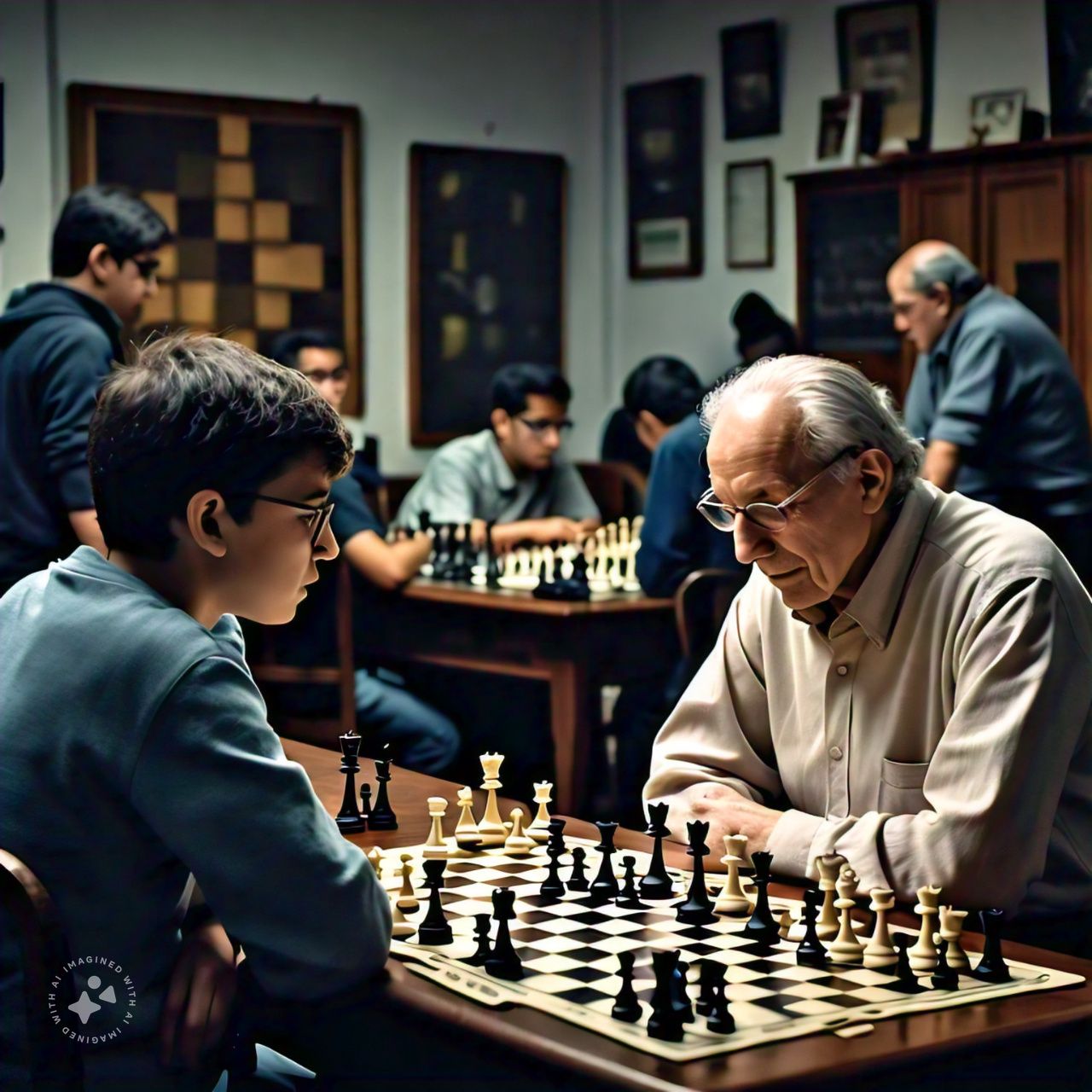In a world teeming with distractions and fleeting trends, chess stands as a timeless beacon of intellectual rigor, strategic thinking, and personal growth. Its 64 squares and the pieces that move upon them offer more than mere entertainment; they provide a profound impact on those who immerse themselves in the game. For young adults, the game of chess serves as a powerful catalyst for cognitive development, emotional resilience, and lifelong skills. This creative exploration delves into the multifaceted ways in which chess shapes the minds and lives of young adults.
Cognitive Development: The Chessboard as a Classroom
At its core, chess is a mental exercise that challenges and sharpens the mind. For young adults, who are at a crucial stage of intellectual growth, chess offers unparalleled cognitive benefits. Each move on the chessboard demands critical thinking, foresight, and problem-solving skills. Players must anticipate their opponent’s moves, devise strategies, and adapt to changing scenarios, all of which cultivate a sharp and agile mind.
Chess has been shown to improve memory, enhance concentration, and boost spatial reasoning. The cognitive demands of the game translate into improved academic performance, as young adults learn to approach complex problems with analytical precision. In this way, the chessboard becomes a classroom where players develop mental faculties that serve them well in their educational pursuits and beyond.
Emotional Resilience: Lessons in Patience and Perseverance
Chess is more than a game of intellect; it is a test of character. The ups and downs of a chess match mirror the challenges of life, teaching young adults valuable lessons in patience, perseverance, and emotional resilience. Each game presents moments of triumph and setbacks, requiring players to manage their emotions, stay focused, and keep striving for improvement.
In chess, as in life, mistakes are inevitable. Young adults learn to accept these mistakes, analyze their errors, and use them as stepping stones to growth. The game fosters a mindset of resilience, encouraging players to bounce back from defeats and continue honing their skills. This emotional fortitude, cultivated over countless matches, equips young adults to navigate the complexities and uncertainties of real life with grace and determination.
Social Skills: Building Connections Across the Board
While chess is often seen as a solitary pursuit, it is inherently a social game that fosters connections and builds communities. For young adults, chess clubs, tournaments, and online platforms provide opportunities to interact with peers who share a passion for the game. These interactions enhance social skills, as players learn to communicate effectively, engage in friendly competition, and build lasting relationships.
Chess also transcends cultural and linguistic barriers, uniting players from diverse backgrounds in a shared pursuit of excellence. Young adults who participate in international tournaments or online chess communities gain exposure to different perspectives and cultures, broadening their horizons and fostering a sense of global citizenship. Through chess, they learn the values of respect, sportsmanship, and collaboration, essential skills for thriving in an interconnected world.
Decision-Making Skills: The Art of Strategy and Planning
Chess is a game of strategy, where each move must be carefully considered and planned. For young adults, the strategic demands of chess enhance their decision-making abilities, teaching them to weigh options, assess risks, and think several steps ahead. These skills are invaluable in both personal and professional contexts, where sound decision-making is crucial for success.
The strategic thinking honed through chess translates into better planning and goal-setting. Young adults learn to set long-term objectives, break them down into manageable steps, and adapt their plans as circumstances change. Whether navigating academic challenges, career aspirations, or personal relationships, the strategic mindset developed through chess empowers young adults to make informed and thoughtful decisions.
Creativity and Innovation: The Beauty of Unconventional Moves
While chess is governed by rules, it also offers a canvas for creativity and innovation. The game rewards those who think outside the box, experiment with unconventional strategies, and find novel solutions to complex problems. For young adults, this creative aspect of chess nurtures their ability to innovate and approach challenges with a fresh perspective.
Chess encourages players to explore different styles and techniques, fostering a sense of curiosity and intellectual exploration. Young adults who embrace the creative dimensions of chess are more likely to apply this mindset to other areas of their lives, whether it be in their studies, careers, or artistic pursuits. The game teaches them that creativity and logic are not mutually exclusive but complementary forces that drive progress and innovation.
Lifelong Learning: A Journey of Continuous Improvement
Chess is a lifelong pursuit, where mastery is an ever-elusive goal. For young adults, the journey of continuous improvement in chess mirrors the broader journey of lifelong learning. The game instills a love for learning, a drive for self-improvement, and a recognition that there is always more to discover and achieve.
As young adults progress in their chess journey, they develop a growth mindset, understanding that effort, practice, and perseverance are key to success. This mindset extends beyond the chessboard, influencing their approach to education, career, and personal development. Chess becomes a lifelong companion, a source of intellectual challenge and joy that continues to enrich their lives.
Conclusion: The Enduring Impact of Chess on Young Adults
Chess is more than a game; it is a transformative experience that shapes the minds, hearts, and lives of young adults. Through its cognitive challenges, emotional lessons, social interactions, strategic demands, and creative opportunities, chess offers a holistic development that prepares young adults for the complexities of life.
The significance of chess in the lives of young adults lies in its ability to foster intellectual growth, emotional resilience, social connections, decision-making skills, creativity, and a lifelong love for learning. It is a timeless game that, despite its ancient origins, remains profoundly relevant in the modern world. As young adults engage with the game of kings, they discover within themselves the potential to become wise, resilient, and innovative individuals, ready to make their mark on the world.

